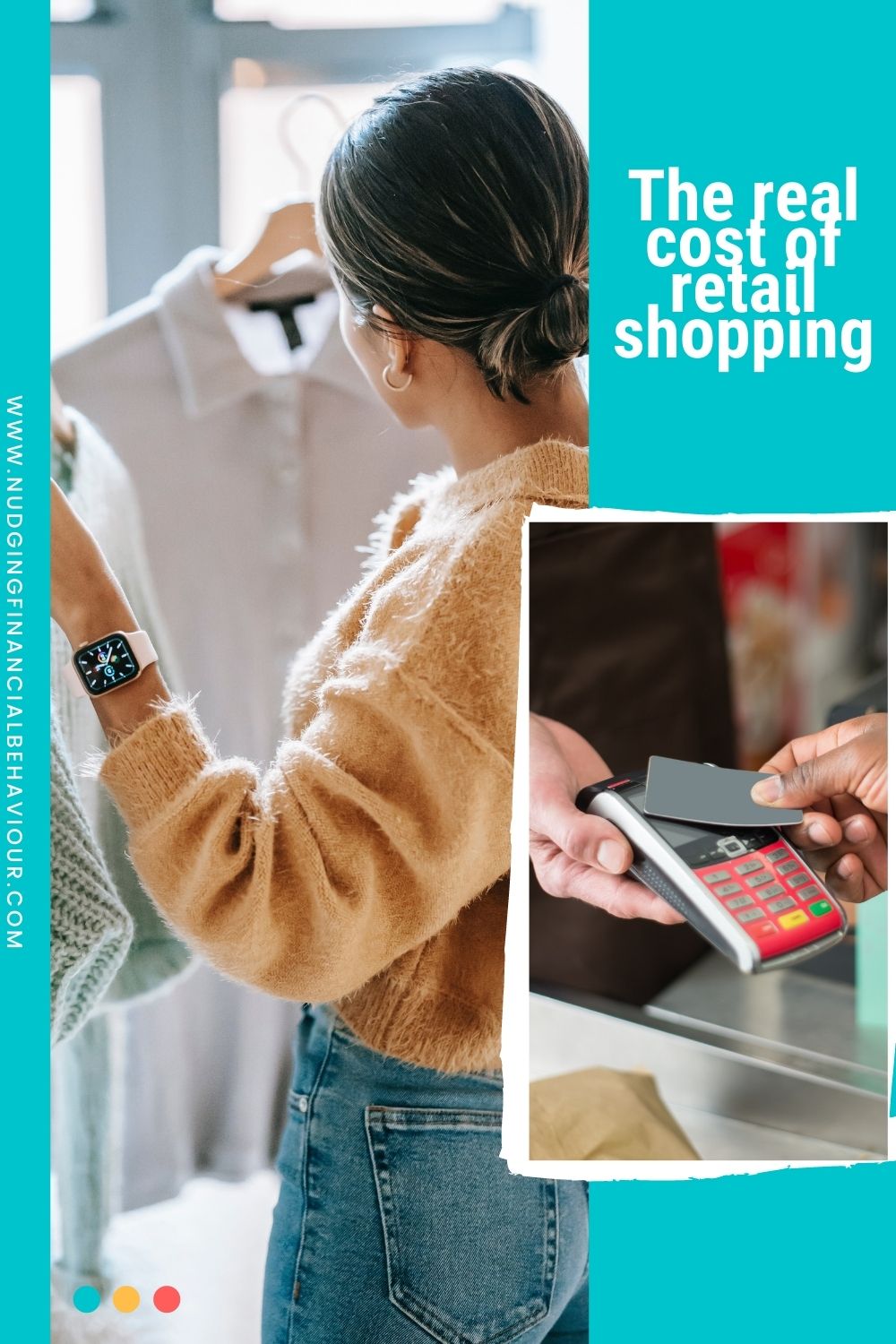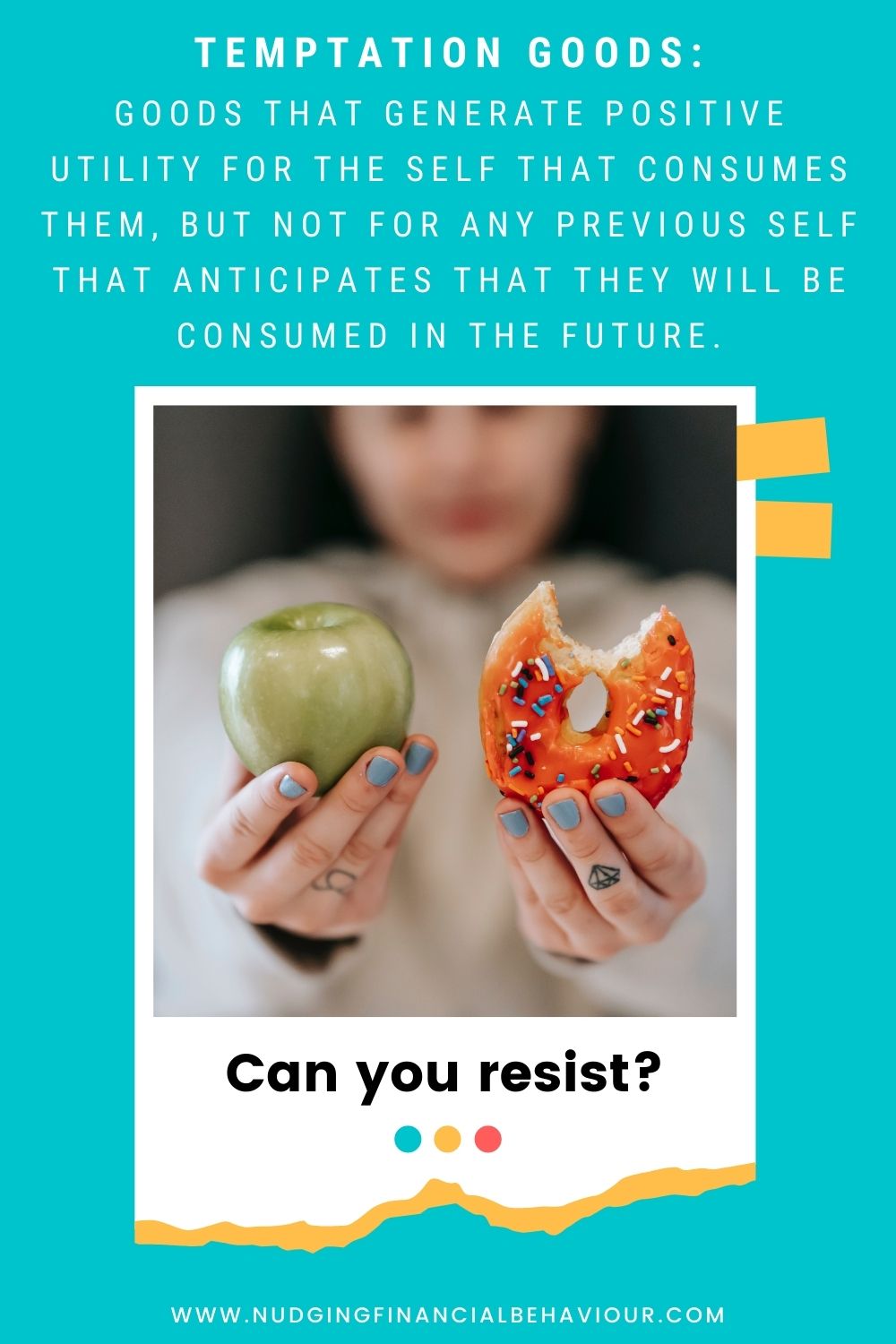I started writing this post and very quickly ended up going down many (necessary) side alleys. Self-control, procrastination and instant gratification are not easy subject matter. So I’ve divided them into three separate posts. This is the first one, focusing on how to improve self-control.
Self-control is the ability to manage your impulses, emotions and behaviours to achieve long-term goals. It’s what separates humans from the rest of the animal kingdom. Self-control sits in the prefrontal cortex, which is the part of our brain that deals with problem-solving, planning and decision-making.
How many of us set grand plans for ourselves at the start of the week which just don’t materialise? Even though the plans were realistic? We periodically fall short of the expectations we place on ourselves because we have limited willpower and are thus unable to exercise self-control to the same degree in all areas of our life. Just think of all those New Year’s Resolutions you didn’t stick to. Fear not: you can learn how to improve self-control.
Many tests have been performed which emphasise the importance of self-control. One study was done at three health clubs in Boston that offered two different membership options, a monthly membership or a pay-per-visit membership. The approximate ratio between the two prices was that if you intended going to the gym more than 8 times a month, it would be cheaper to buy the monthly membership.
The hypothesis developed is that most people look at that ratio and think “sure, I’ll go to the gym more than twice a week” and then commit to the monthly fee. However, the reality is that we’re overconfident in our ability to commit to these things and going to the gym that often. The study found exactly that with members only visiting the health club around 4.5 times a month.

Many tests have been performed which emphasise the importance of self-control. One study was done at three health clubs in Boston that offered two different membership options, a monthly membership or a pay-per-visit membership. The approximate ratio between the two prices was that if you intended going to the gym more than 8 times a month, it would be cheaper to buy the monthly membership.
The hypothesis developed is that most people look at that ratio and think “sure, I’ll go to the gym more than twice a week” and then commit to the monthly fee. However, the reality is that we’re overconfident in our ability to commit to these things and going to the gym that often. The study found exactly that with members only visiting the health club around 4.5 times a month.

Even more concerning is that you would expect that once a member realises that they’re not going as often as to warrant the monthly fee, that they would then either start going more or drop to the pay-per-visit contract. But that did not happen.
The interpretation of this behaviour speaks directly to self-control problems. I want to go to the gym. I sign up expecting to go frequently (naiveté and overconfidence). But then today, I don’t feel like going. This creates a form of tension between what we plan to do and our actions later.
Our lack of self-control trips us up when trying to meet the expectations we set for ourselves. Share on XAn important thing to consider here is how we make our credit decisions. Clothing retailers make high profit margins off what is referred to as ‘teaser-rate’ offers. As an example, you’re offered a store card which doesn’t charge you interest for 6 months. I’d be surprised to hear if you even asked what the interest rate is after those 6 months? We generally don’t ask that question because we’re focused on the fact that we can buy now and its interest free. And we expect to pay the debt back within the 6 months. The reality though, is quite the opposite.

The trickery gets even better once you start using that store card and receive your monthly statements. You’ll always see the statement state the “minimum payment outstanding”. This payment is necessary to avoid the issue of compounding interest and escalating debt. The problem though, is that this amount is also an anchor. It anchors us into paying that minimum amount outstanding, no more.
An article on the ‘cost’ of this type of anchor on minimum payments showed that when minimum payment anchors were removed from statements, the average partial payment went up by 70%. The anchor reduced the amount paid and roughly doubled the amount paid in interest.

The trickery gets even better once you start using that store card and receive your monthly statements. You’ll always see the statement state the “minimum payment outstanding”. This payment is necessary to avoid the issue of compounding interest and escalating debt. The problem though, is that this amount is also an anchor. It anchors us into paying that minimum amount outstanding, no more.
An article on the ‘cost’ of this type of anchor on minimum payments showed that when minimum payment anchors were removed from statements, the average partial payment went up by 70%. The anchor reduced the amount paid and roughly doubled the amount paid in interest.
It’s easy to blame a multitude of things for mindless spending or inadequate savings – economics, politicians, banks, globalisation, capitalists, financial advisors, bad luck… But the only person who is truly responsible is the one whose name is associated with that subscription. Or that investment. If we want to adult when investing, then we need to learn how to take personal responsibility.
There’s something known as psychological neoteny: consider a mother of four head-banging to heavy metal. Nothing wrong with that, but some might look at it and think it’s slightly immature. However, the retention of youthful behaviours and attitudes in later adulthood is often a valuable developmental characteristic. That’s psychological neoteny. On the negative side though, sometimes our brains mature without developing the associated basics of responsible adult behaviour. If you can’t control your drinking habit, how are you able to invest intelligently?
Admittedly, it’s difficult being a self-aware adult and being able to control all urges. There is just too much outside stimuli that influences our choices around money. Furthermore, there are industries that do a terrific job of exploiting our weaknesses. But back to the point – the argument of such an industry being immoral is not credible anymore.

There’s something known as psychological neoteny: consider a mother of four head-banging to heavy metal. Nothing wrong with that, but some might look at it and think it’s slightly immature. However, the retention of youthful behaviours and attitudes in later adulthood is often a valuable developmental characteristic. That’s psychological neoteny. On the negative side though, sometimes our brains mature without developing the associated basics of responsible adult behaviour. If you can’t control your drinking habit, how are you able to invest intelligently?
Admittedly, it’s difficult being a self-aware adult and being able to control all urges. There is just too much outside stimuli that influences our choices around money. Furthermore, there are industries that do a terrific job of exploiting our weaknesses. But back to the point – the argument of such an industry being immoral is not credible anymore.

Don’t fall under any illusions: the only person who can look after our own selves is ourselves. Financial education on its own doesn’t solve this problem. Learn how to improve self-control!
(Of course – some events our outside of our control. But learn to manage the ones that are within your control before making excuses.)
Now is where I really start coming down hard on those of you that know you have the means to be doing better. Let’s consider the following dynamic:
What would you say if someone offered to double your monthly salary – forever – if you agreed to abstain from your favourite treat for a month? No alcohol? No coffee? I’ll leave the other examples to your imagination…
Would you take the deal?
It sounds like a no-brainer, doesn’t it? But these are the exact types of deals that we are unable to make a success of because of our lack of self-control. This has been found in some innovative research regarding financial access and poverty action. A study on micro-entrepreneurs noted the following:
The study shows that if these vendors saved 1% of the working capital they were borrowing (equivalent to the cost of two cups of tea), they would be debt free and doubling their profits in 28 days! Knowing how to improve self-control and the power of compound interest! Borrowing at 10% a day is foolish if you don’t have to. It guarantees a perpetual cycle of poverty.

I suppose the key phrase in the above paragraph is “if you don’t have to”. Often, there is just no gap to get out of that cycle. But the immensely revealing impact of self-control is just as telling for wealthy individuals. Of course, there’s an element of financial literacy at play. Understanding the maths behind compounding is immensely motivational if you have the means. But there’s really no excuse if you have the money.
The richer you are the smaller the proportion of your income you spend on temptation goods. Temptation goods are defined as the goods that generate positive utility for the self that consumes them, but not for any previous self that anticipates that they will be consumed in the future. Think: donuts. But it is such temptation goods that drive the myopic behaviour that limits the poor from getting out of that hole.
I suppose the key phrase in the above paragraph is “if you don’t have to”. Often, there is just no gap to get out of that cycle. But the immensely revealing impact of self-control is just as telling for wealthy individuals. Of course, there’s an element of financial literacy at play. Understanding the maths behind compounding is immensely motivational if you have the means. But there’s really no excuse if you have the money.
The richer you are the smaller the proportion of your income you spend on temptation goods. Temptation goods are defined as the goods that generate positive utility for the self that consumes them, but not for any previous self that anticipates that they will be consumed in the future. Think: donuts. But it is such temptation goods that drive the myopic behaviour that limits the poor from getting out of that hole.

You’re not off the hook yet: replace donut with “Playstation” or “luxury spa weekend”. The lack of self-control isn’t any more prevalent among the poor than it is amongst the rich. It’s often just less obvious when you’re rich(er). Not anymore though… take inspiration from the following extract which illustrates that this kind of discipline also has a positive impact on your mental health:
Like a muscle, the more you exercise self-control on a consistent basis, the stronger you get.
As your self-control increases, the more you gain the ability to direct your life in a manner that is congruent with the true you.
The more congruent your actions are with your thoughts and feelings, the better you feel about yourself and the decisions you make.
Every time you feel good about a decision you make, it raises your self-esteem and your self-confidence. You also reinforced in your mind what you are capable of and it makes it less difficult to make similar decisions in life.
We need to build good implementation intentions. Continually remind yourself that successful habits can change behavior over time and help you reach your long-term goals. That’s how to improve self-control. Step up!
We need to acknowledge that we struggle with self-control. I’m not against setting high goals for oneself but we do need to be realistic when those goals and decisions are related to any monetary payment. We can’t begrudge marketers for doing a good job of using our biases to their advantage, but there is a way to ensure the company AND the consumer wins.
There have been some innovative programs that succeed in doing this. Think of programs where you are paid a refund at the start of the 2nd month based on your performance/attendance/behaviour in the preceding month. And including incentives to better that in the months thereafter. Those self-control exercises are a win-win!
The structuring of any products or services where decisions need to be made pertaining to smoking, alcohol, savings, credit card borrowing etc. have strong implications and the decisions matter.
For credit decisions in particular, start by asking the question: “What is the interest rate after that interest-free period?” Be informed. And if I may… if you know you struggle with self-control in this area, perhaps you’re better off not having that store card in the first place!
Self-restraint is the exception, not the norm. We like consuming! Share on X
The structuring of any products or services where decisions need to be made pertaining to smoking, alcohol, savings, credit card borrowing etc. have strong implications and the decisions matter.
For credit decisions in particular, start by asking the question: “What is the interest rate after that interest-free period?” Be informed. And if I may… if you know you struggle with self-control in this area, perhaps you’re better off not having that store card in the first place!

As difficult as it is to admit, we fall short of our expectations. But the promising thing is that you’re starting to understand your biases a little better. And hopefully you’ve gotten some ideas of how to improve self-control.
Mental accounting often gets a bad wrap, but spreading your funds out to make it easier to exercise self-control is one of my favourite hacks!
As difficult as it is to admit, we fall short of our expectations.
Self-restraint is the exception, not the norm. We like consuming! Share on XBut the promising thing is that you’re starting to understand your biases a little better. And hopefully you’ve gotten some ideas of how to improve self-control.
Mental accounting often gets a bad wrap, but spreading your funds out to make it easier to exercise self-control is one of my favourite hacks!
Let us know in the comments below.
Let us know in the comments below.
I am passionate about helping people understand their behaviour with money and gently nudging them to spend less and save more. I have several academic journal publications on investor behaviour, financial literacy and personal finance, and perfectly understand the biases that influence how we manage our money. This blog is where I break down those ideas and share my thinking. I’ll try to cover relevant topics that my readers bring to my attention. Please read, share, and comment. That’s how we spread knowledge and help both ourselves and others to become in control of our financial situations.

Dr Gizelle Willows
PhD and NRF-rating in Behavioural Finance
Receive gentle nudges from us:
[user_registration_form id=”8641″]
“Essentially, all models are wrong, but some are useful.” – George E.P. Box
